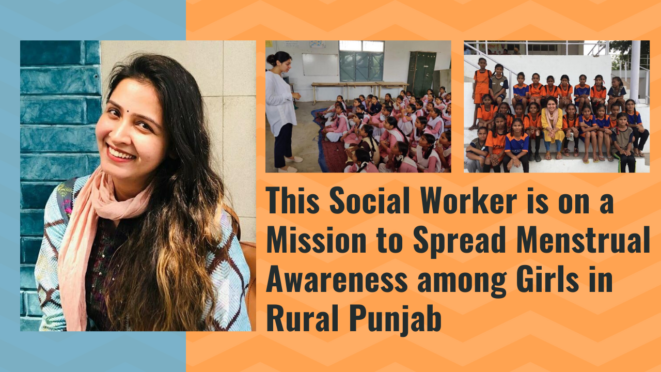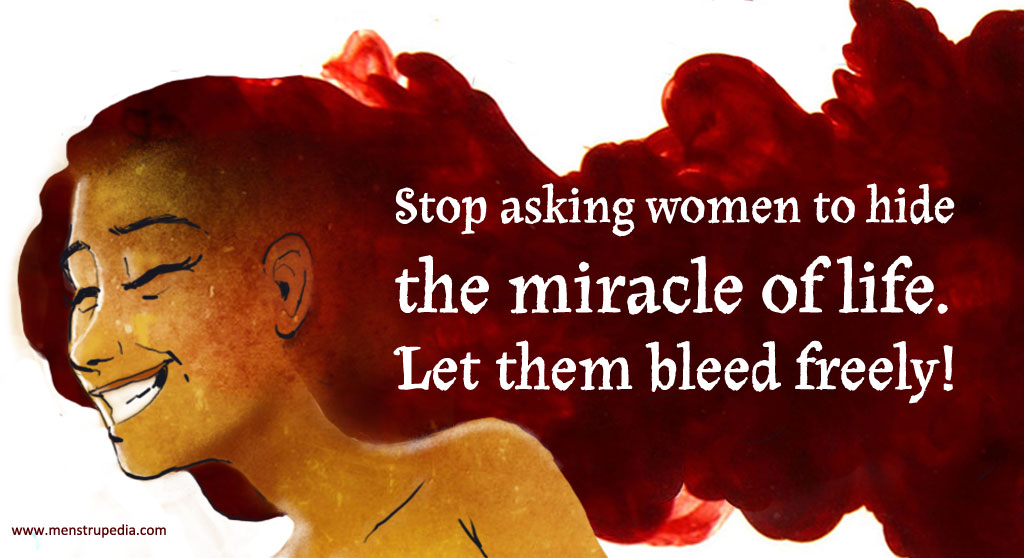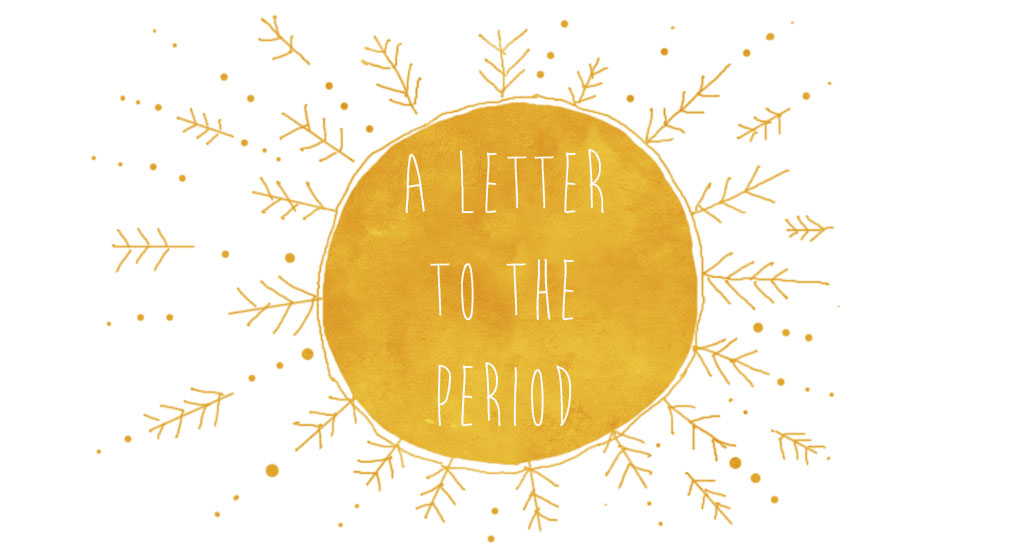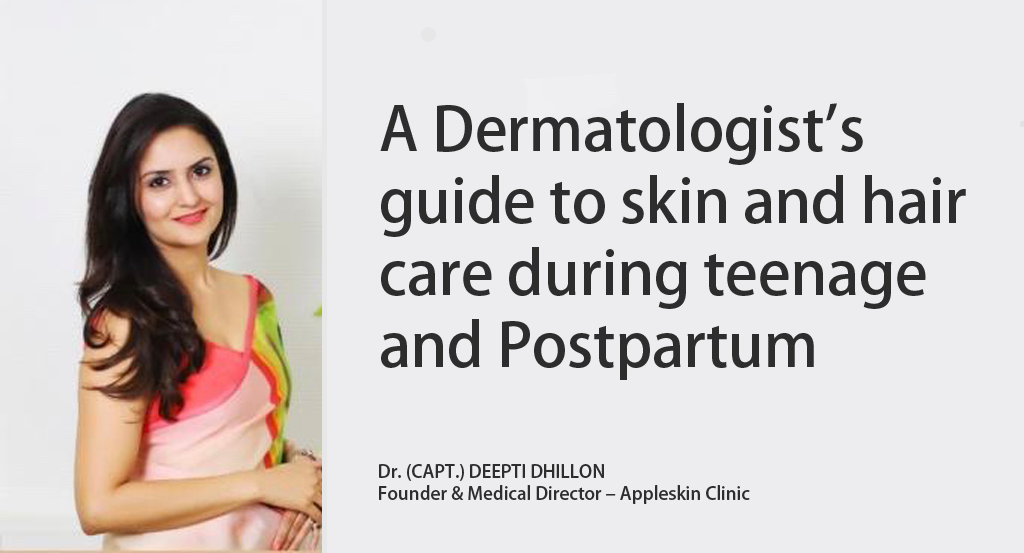We got in touch with Sakshi Bhatia Chopra, an associate at RoundGlass Foundation, India. To know more about the organization’s initiative, we had a brief chat with her. Here’s what she had to say.
1. Please tell us a little something about yourself, your initiative, and the kind of work you do.
I am a passionate social worker and an advocate of women’s wellbeing. After quitting my corporate career of 6 years in the field of banking, I joined RoundGlass Foundation, India, as an Associate. Since then, I have worked with more than 2500 young girls from rural schools in the villages of Punjab, helping them deal with menstrual hygiene and its related awareness, in collaboration with Menstrupedia. I have also helped set up a few women self-help groups, where they get together and make bio-degradable sanitary napkins for a livelihood. A connoisseur of health and hygiene, I feel that my mission is to help as many young girls in rural Indian villages as possible, in order to become more aware of menstruation-related hygiene. I like to travel, connect with different cultures, and help people discover their true potential through collaboration.
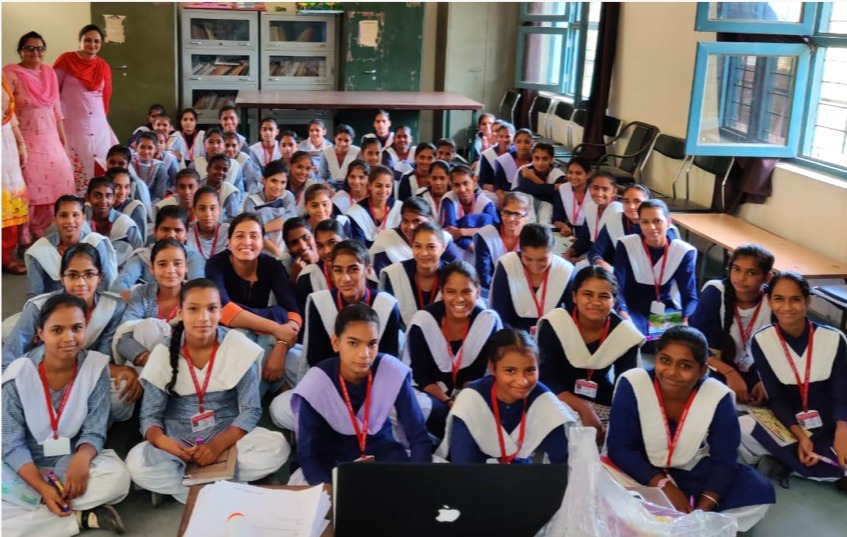
2. What made you decide upon running an initiative on menstrual education?
This initiative is very close to my heart because I am an endometriosis survivor and I used to always complain about enormous pain during my periods. I would throw up, pass out, and frequently missed school/college/work. Sadly, because of a lack of awareness about this subject, everyone around me thought that this was normal and didn’t pay any attention to my ill-health. One day, when I could not handle the pain, I decided to get my check-up done and that’s when I realized for the first time that I was suffering from endometriosis. I had never heard of it before and did not know the effect of it on my physical and mental health.
I understand the utmost importance of awareness which makes it so critical to creating a platform for young girls to talk about menstruation in a safe environment, making it a normal part of their lives. I am grateful to RoundGlass Foundation for giving me a platform and the opportunity to initiate this project.
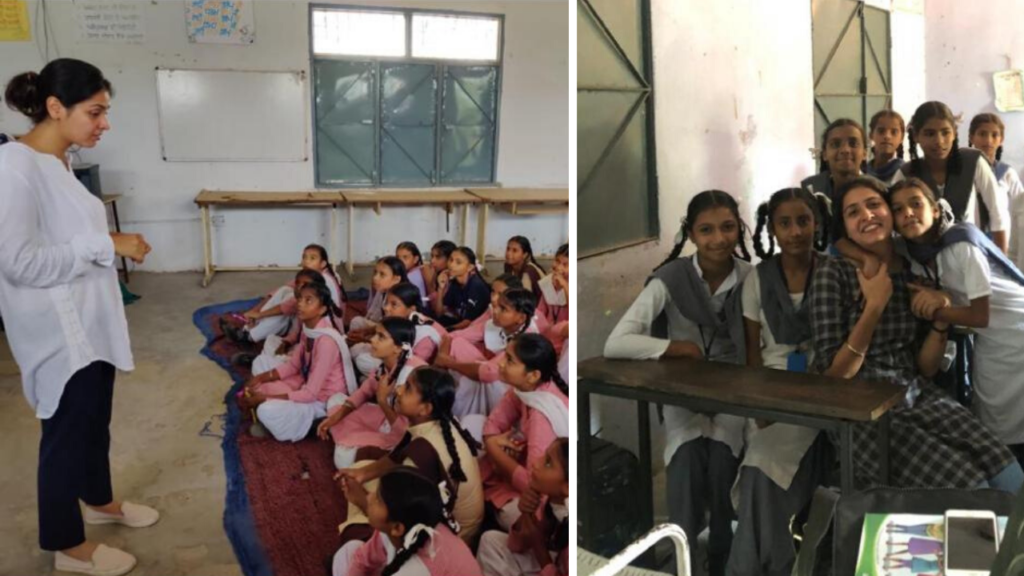
3. Can you tell us more about the scope, reach and impact of this project? What were the demographics like?
The project has reached approximately 3000 girls in more than 50 villages in the last 6 months. We now have a team of 10 coordinators who will be conducting workshops in all the schools of rural Punjab with the aim to cover the whole state by spreading awareness on a larger scale with sustainability as the main focus. We also distribute Menstrupedia Comics (the Punjabi edition) to every school we conduct workshops in and we make sure that the comics are available to girls at any time they wish to read them. Some of the schools to which we have returned, the teachers have told us about how the students now have better self-confidence, acceptance, and courage to talk about menstruation after the workshop and the readings provided. We have a long way to go in terms of measuring the exact impact and its scope, but on-ground, we know that our initiative is definitely working.
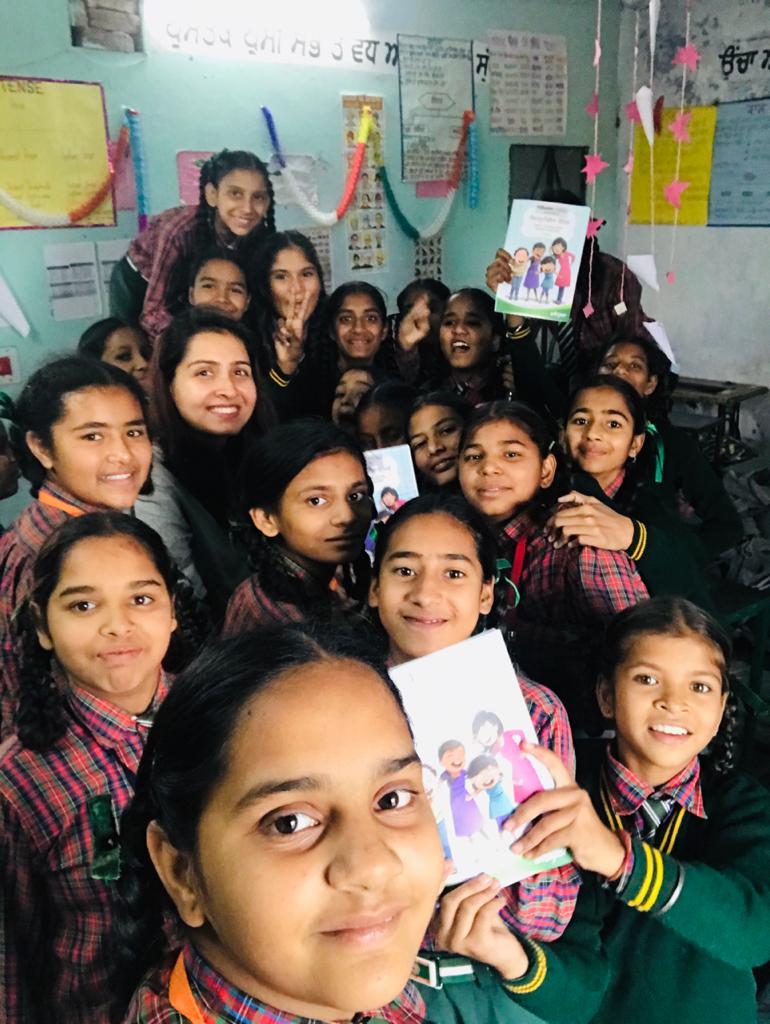
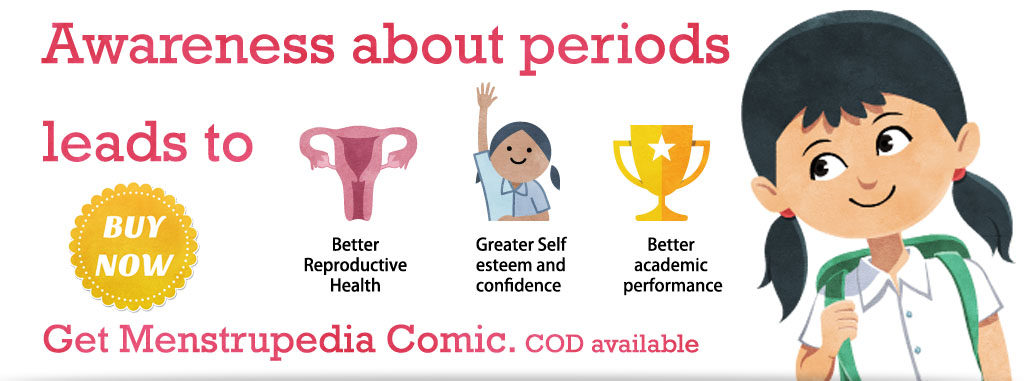
4. Were there any challenges you faced while pursuing this noble cause of empowering girls about periods in Punjab?
Thankfully, school and district authorities never came across as a challenge for us; in fact, they have been very supportive and welcoming for this to take place in their schools. The real challenge is to create a safe forum/environment/platform in just 40 to 45 minutes for the girls so that they can open up and understand that periods are normal, conveying to them that it is important to talk about it openly, and telling them that they should not be concerned about boys watching them taking out pads from their bags, putting it inside their pockets or hiding them in their dupattas. However, it is very much possible if the coordinators are trained well and are sensitive and engaging with the children. Usually, it takes around 2-3 workshops for a coordinator to get into the groove of it, but it is definitely very much doable.
The other big challenge is to measure the exact impact of this initiative. I am very open to exploring any scientific or human engagement tools that can help us in achieving this goal.
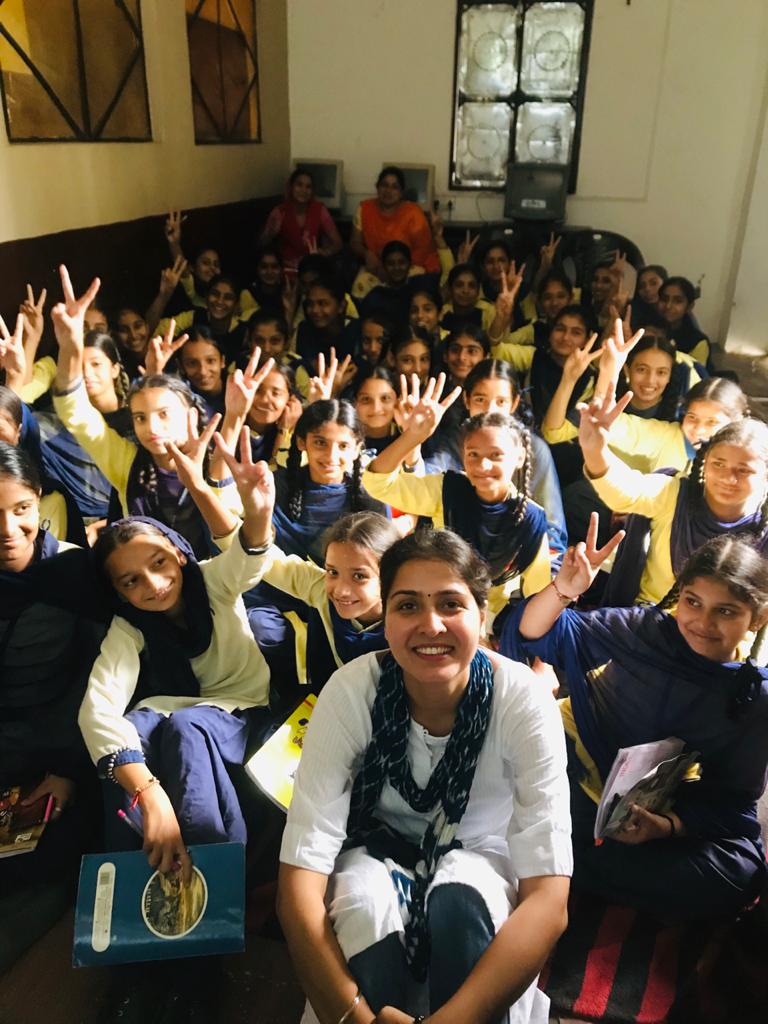
5. What are the changes you hope your work would bring about in the lives of girls and women?
It will help, and it is already helping girls in understanding more about their own bodies so that they know that period blood is not impure or contaminated. A girl who is bleeding is not impure and we communicate to them the importance of managing their periods in a healthy way. Moreover, taboos are a product of mental conditioning, and so releasing one or many of such taboos will make them mentally and emotionally stronger in dealing with other tough aspects of their lives. This helps in bringing them closer to their own truth, aiding them in cultivating their own voice.
For example, when I ask girls about the quantity of water they drink in a day, usually, the average answer is 1 glass a day which is way less than the minimum body requirement. In this workshop, we also discuss the importance of nutrition in order to deal with basic female health and hygiene which can translate into stronger girls in every other facet of their lives.
6. Any insights on how you went about conceptualizing the project? Did you adopt certain techniques and advocacy approaches to the problem?
Menstrupedia Comics and its tutorial videos helped me a lot in initiating this project. I have also incorporated a few extra pointers with my experience and the feedback acquired from principals/teachers and students. I also proactively try to stay in touch with my counterparts who are doing similar work in different parts of the country. I sometimes even talk to doctors, hygiene consultants and other professionals in order to keep myself consciously informed.
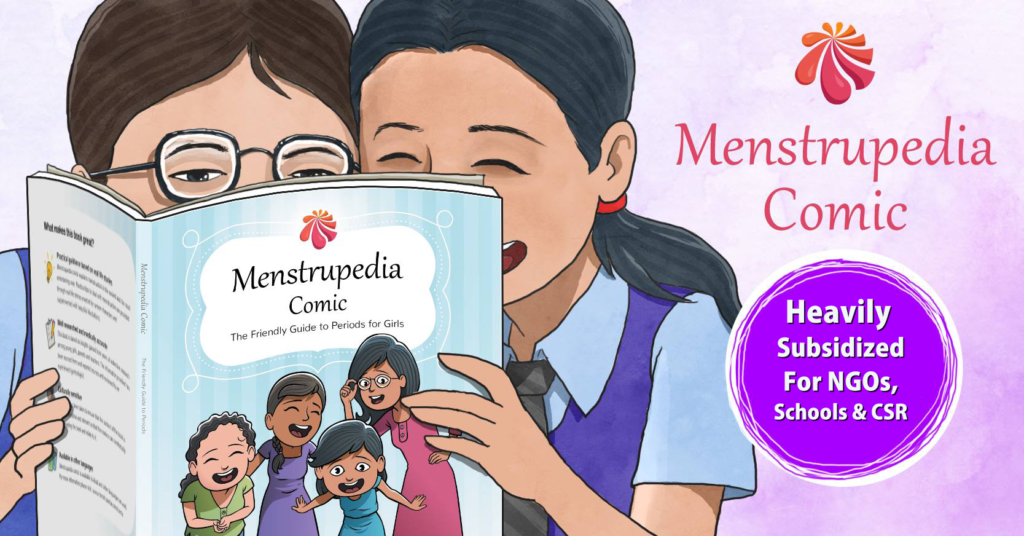
7. What was the best moment/part of pursuing such a project? Perhaps there is something that makes you feel rewarded for the effort you put in?
I remember when I had just started this initiative and was in a school conducting maybe my first or second workshop, and some of the girls were sharing their first experience of menstruation with us, speaking of how much they cried at that time and the trauma they went through when suddenly a girl went outside in the middle of the workshop and came back telling everyone that she just got her period for the first time and that too with a big smile on her face. The entire group of girls started clapping and celebrated that moment. That smile on her face, while talking about periods was my biggest reward and I realized the impact of the work that I have begun, and that I still continue in doing, and so I know I have this responsibility on my hands. It was certainly one of the best moments of my life that will always keep me driving forward to do more.
8. Do you have a message for our readers?
Every human endeavour, no matter how people-driven it is, always begins from the Self. Start talking about periods with confidence and share information with people around you, your family, your friends, and peers. There is nothing wrong with it.
As for people who are working on similar projects, I would like to say that – the most important part of the workshops or this whole initiative is to create a safe space for girls and to make them comfortable in talking about periods, so keep on researching and practicing in order to come up with innovative ways on how such a forum can be created.
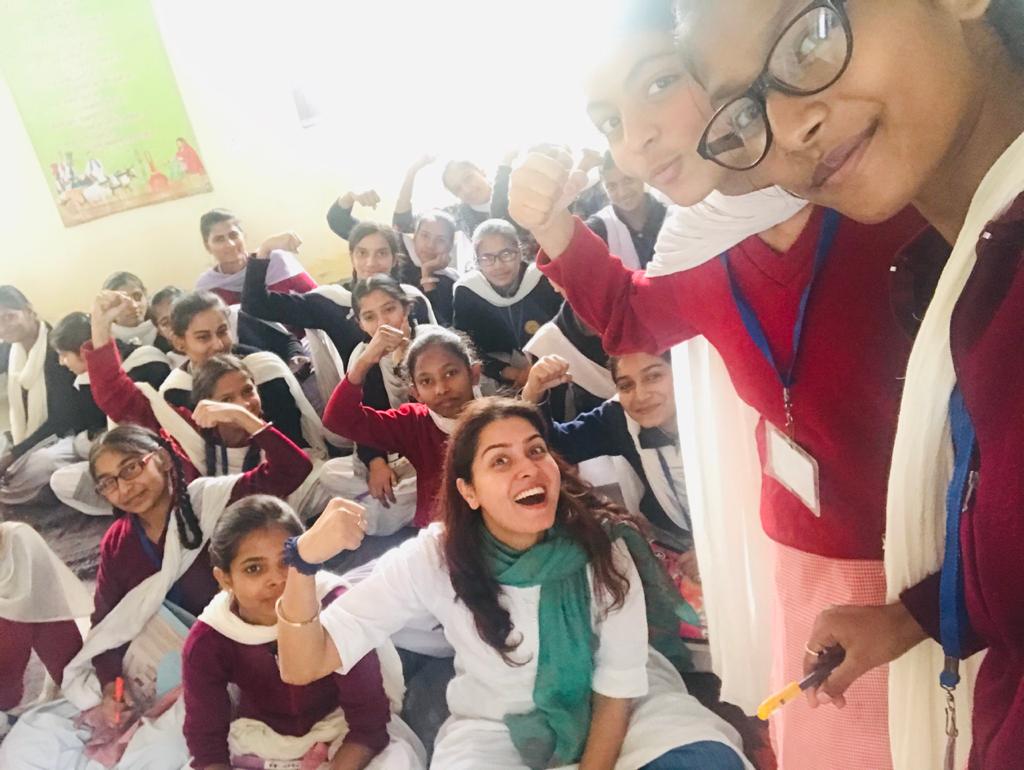
Interviewed by: Menstrupedia Staff
Edited by: Divya Rosaline


